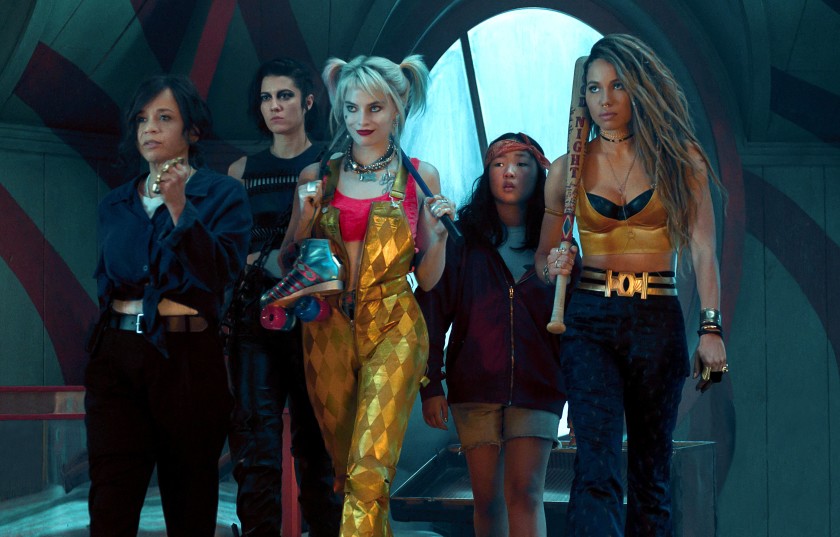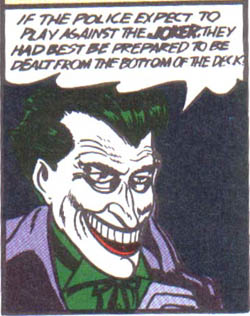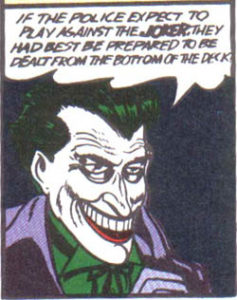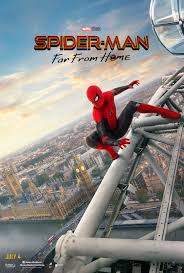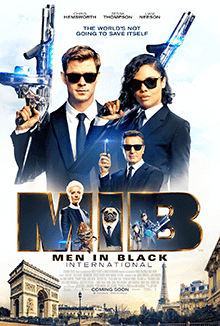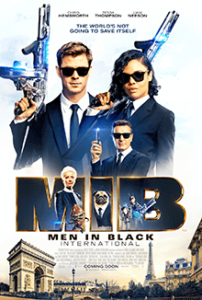Birds of Prey (and the Fantabulous Emancipation of One Harley Quinn)
Posted on February 6, 2020 at 5:20 pm
B| Lowest Recommended Age: | Mature High Schooler |
| MPAA Rating: | Rated R for strong violence and language throughout, and some sexual and drug material |
| Profanity: | Very strong and crude language |
| Alcohol/ Drugs: | Brief drug use |
| Violence/ Scariness: | Extended and very graphic peril and violence, characters injured and killed, disturbing images |
| Diversity Issues: | A theme of the movie |
| Date Released to Theaters: | February 7, 2020 |
| Date Released to DVD: | May 11, 2020 |

At last, the sisters are doing it for themselves, on screen and off. “Birds of Prey (and The Fantabulous Emancipation of One Harley Quinn),” directed by Cathy Yan and written by Christina Hodson (“Bumblebee”), it has the ladies of the DC universe band together when the guys (Batman and Joker) are (literally) out of the picture.
We all know that when you’ve been dumped, you’ll need some recovery time, and if that involves Cheez-Whiz straight from the can, we won’t judge. You’ll need to adjust your social media settings, too. In the case of Harley Quinn (co-producer Margot Robbie), that can mean blowing up what used to be your special place. As an observer notes, that’s how “she just publicly updated her relationship status.”
Unfortunately, in the case of Harley Quinn, whose relationship with impulse control has been even more volatile than her relationship with the madman she calls Mr. J, has made many, many enemies, helpfully identified by name and grievance on screen so we can keep up. Without Mr. J as protector, it’s olly olly oxen free for anyone who wants revenge.
As Harley causes even more trouble and tries to hide or protect herself from those coming after her, she comes across the sole survivor of a mob family who is now an assassin dedicated to killing every man responsible for her family’s murders. She is still figuring out a name and a purpose once her targets have all been wiped out but one thing she has completely figured out is the crossbow. She will be known as The Huntress, and she is played by the always-terrific Mary Elizabeth Winstead. Dinah Lance (Jurnee Smollett-Bell) is a chanteuse in a club run by mobster Roman Sonasis (Ewan McGregor) with his henchman Victor Zsasz (Chris Messina). When Roman learns that she has some mad fighting skills, he makes her his driver.
There is the young girl thief Cassandra Cain (Ella Jay Basco), who picks the wrong pocket. Trying to get to the bottom of all of this is a tough cop named Renee Montoya (Rosie Perez) who is too honest to get promoted. Over the course of the film, the female characters will not always be on the same side. Some even betray each other. But when a girl needs a hair tie (in the middle of a big fight scene in a super-creepy abandoned amusement park beyond the wildest nightmares of Scooby-Doo, well, sisterhood is powerful.
Perhaps not as fun as it wants to be, but the movie has high spirits and a refreshing perspective that goes a bit deeper than just grrrl power. The carnage (with disturbing images and sounds) is intense and Harley does not always find the sweet spot between deranged creepy and deranged endearing. Deadpool may be nutty and naughty, but he is true-hearted, an anti-hero who is more hero than anti. As mesmerizing as Robbie is in the role, the storyline might have worked better with one of the other characters as the lead. It’s fantabulous that she is emancipated, but now she has to decide who she wants to be.
Parents should know that this film includes constant and very graphic peril and violence, with many characters injured and killed, disturbing sounds and images, knives, crossbow, guns, explosives, chases, very strong and crude language, nude images, brief drug humor, and some potty humor.
Family discussion: How did the early experiences of Harley and Huntress affect the way they made decisions? How is this like and different from other superhero movies?
If you like this, try: “Deadpool” and the “Birds of Prey” television series

